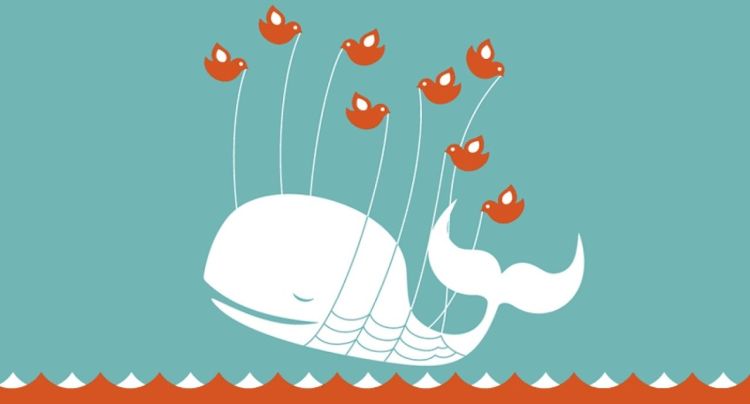After years of being the subject of criticism over an endless list of business and strategic pratfalls, Twitter may be on the verge of receiving the worst insult of all:
Nobody wants to buy it.
That would be a staggering, almost unimaginable rebuke to a company that investors currently value at $17.4 billion. But that, of course, might be the main problem right there. The premium someone would have to pay might approach the $26 billion Microsoft paid for LinkedIn earlier this year, an amount that represented a 50 percent premium on the company’s value at that time.
So who wants to pay $26 billion for Twitter? Possibly, nobody.
Recode reported yesterday that rumored bidders Disney, Apple, and Google have all decided not to make bids. Google is really the biggest stunner there. For years, it seemed like an obvious move for Google to snap up Twitter for its data, its boost to real-time news search, its news delivery value, and its social juju.
That leaves Salesforce. Which would be nuts. It’s great that CEO Marc Benioff is such a fan, but it’s hard not to see such an impulse as a way to salve a wounded ego over losing the bidding for LinkedIn to Microsoft. Indeed, analysts and investors are trying to make it plain to Benioff that they think this is a terrible idea. The company’s stock is down this week.
Will he listen? Benioff likes to think of himself as an iconoclast. But he’s also smart. Given that no other likely bidders may emerge (Hello, Facebook?), he might be tempted if he can get the company for a low premium. But the risks are enormous. Seems like a 50-50 proposition at this point.
Supposedly, Twitter has said that it wants to conclude a deal by the time its quarterly earnings roll out later this month. That may not leave enough time for any other bidders to emerge. One can never entirely rule out Amazon or Facebook or Microsoft. Perhaps Samsung would make a wildcard bid. Perhaps some deep-pocketed digital godfather is lining up financing to take Twitter private.
Mostly, those seem like fantasy options at this point. Which, to say the very least, makes for an incredibly murky future.
Earlier this week, Vanity Fair’s Nick Bilton, the official Twitter historian, wrote:
What happens next to Twitter is anyone’s guess. But I do know that, for the first time, Twitter now has a Plan B. A few months ago, while reporting a feature story about the future on the company for Vanity Fair, I asked a number of executives what might happen if Dorsey, who seemed like a Hail Mary option, couldn’t turn Twitter around. What was Plan B, I asked them? “There is no Plan B,” I was told. “This is it.”
So, what’s Plan C?
It would seem the only option is to continue to muddle along and see if CEO Jack Dorsey’s turnaround plan can finally turn things around. Though even that is going to be tough. Just this week, Bloomberg reported that while Dorsey was in favor of keeping the company independent, the company’s board favored a sale.
Among those wanting a sale is cofounder Ev Williams, a former CEO and longtime nemesis of cofounder Dorsey. Bloomberg painted a picture of a company that is rudderless one year after Dorsey’s return:
Though its fate is in flux, one thing is clear: A year after he officially took back the reins as CEO, Jack Dorsey has either ceded or lost at least some control over the future of the company he helped create. On the board, he may be overruled by fellow directors on the future of Twitter as an independent company. Within his management team, he’s largely delegated command of Twitter’s strategy to chief financial officer Anthony Noto. And among advertisers, Twitter’s fortunes are being constrained by its stagnant user numbers, which Dorsey’s product changes have failed to significantly boost, and by growing concern about harassment and abuse on its service.
In other words, it’s business as usual at Twitter. Clashing leaders. A struggle to attract users. A company unable to change too much because core users would rebel and unable to tame a thicket of trolls who have turned it into a cesspool of racism and hate and abuse.
And now, it appears to be unloved by its Silicon Valley brethren, the same players who don’t hesitate to throw billions of dollars at unproven startups with no business models, just for their imagined potential.
If you’re looking for some kind of silver lining here, failure to sell could shift the balance of power back to Dorsey. And possibly, it could be a liberating, nothing-left-to-lose moment that allows him to make a radical shift in the service and finally deal with its inherent shortcomings.
Twitter’s history and track record weighs against it. It often seems that no one can save Twitter from itself. And the only question would be whether the events this month could sent it into a death spiral (a tumbling stock price that sends employees fleeing and a loss of confidence that has advertisers ducking for cover.)
In other words, Twitter’s last, and most epic, Fail Whale.


